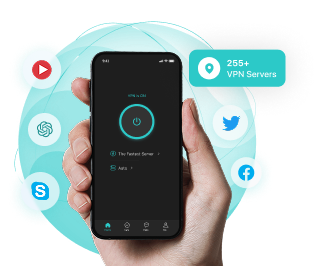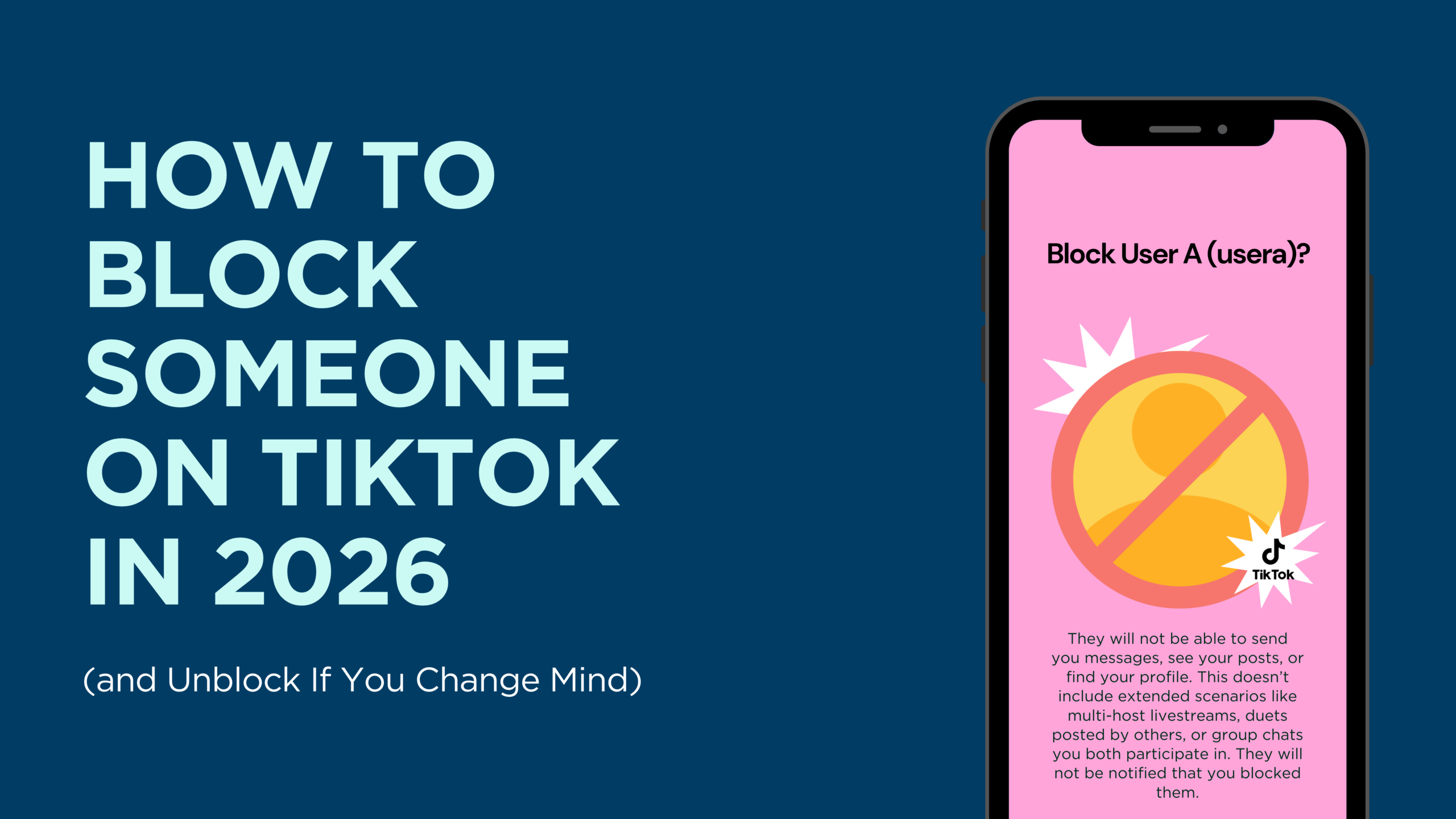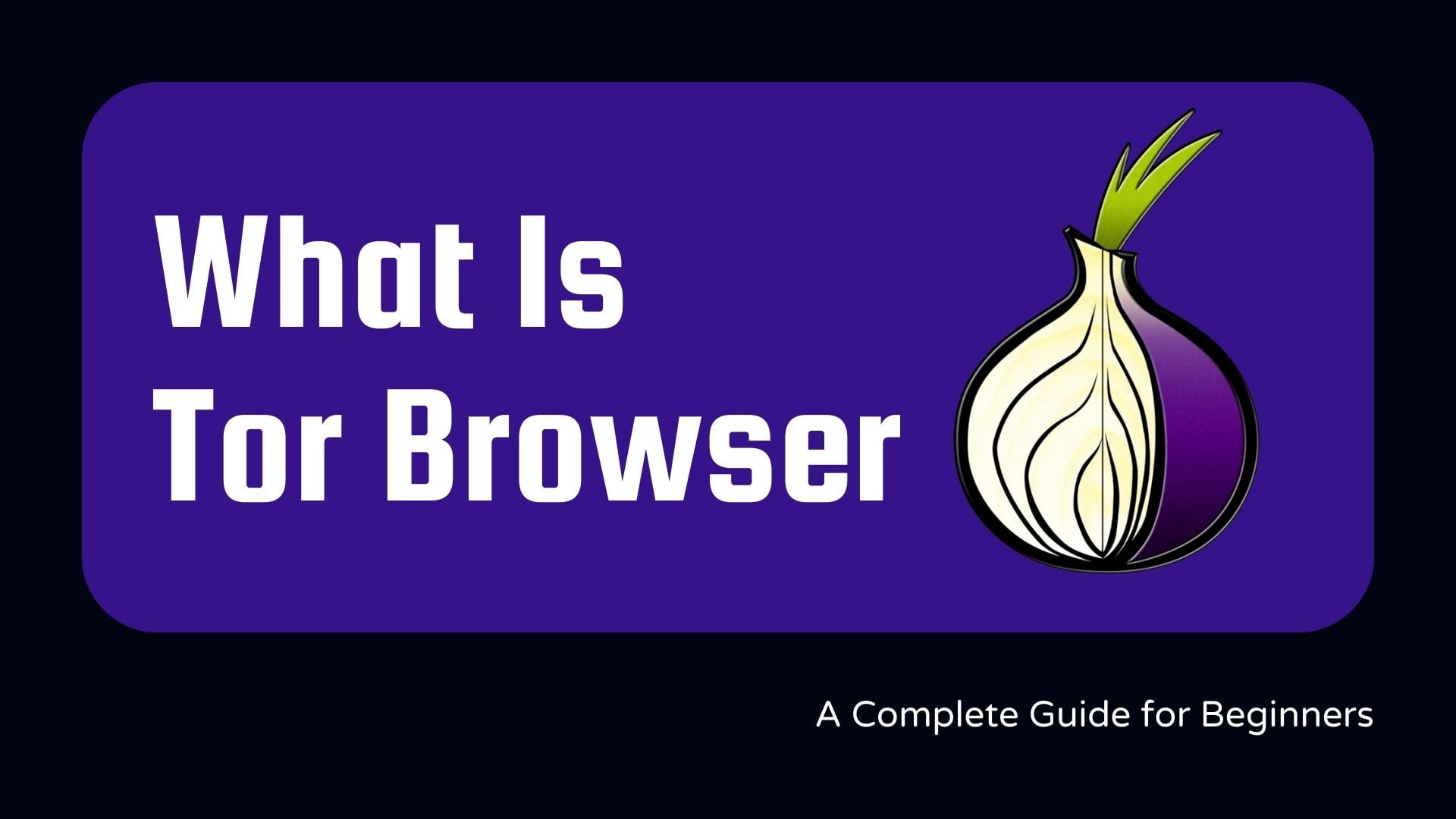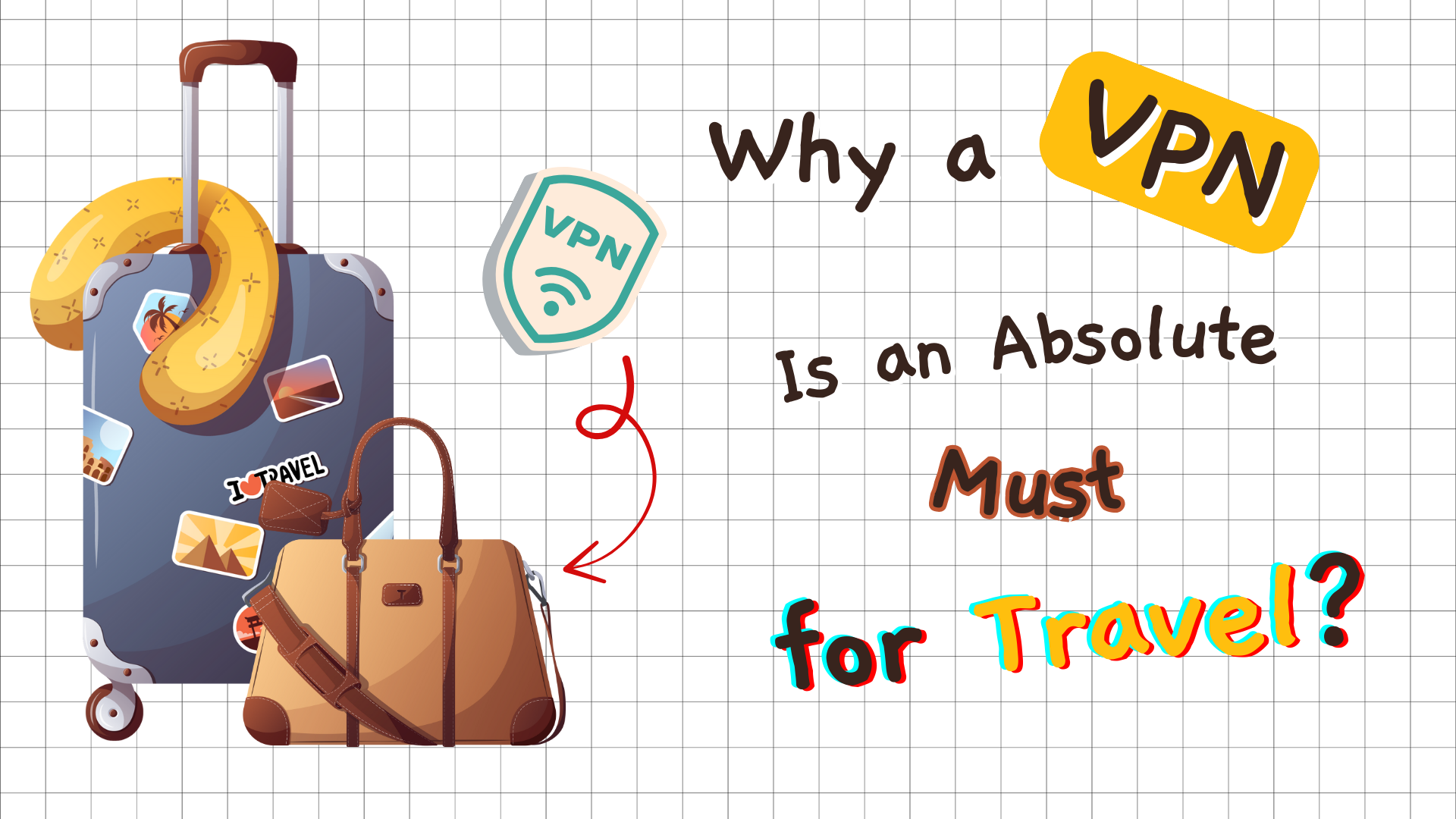
A VPN is an absolute must for travel. It provides the safety of home while you’re abroad and lets you access domestic content even if you’re in some faraway location. Want a preview of the next stop on your trip? A VPN tells the internet you’re already there, so you can browse like a local from anywhere in the world.
Ready to learn more? Let’s dive into the details and explore how to secure your privacy with a reputable VPN when you’re away from home.
Table of Contents
Traveling in a Hyper-connected World
Suppose you’re on vacation, enjoying a sunny afternoon at a corner café overlooking the harbor. The air smells faintly of espresso and cinnamon pastries. You pull out your phone, connect to the free Wi-Fi, and start uploading those beautiful vacation photos or sending an email to friends back home. The atmosphere is lovely but possibly a little too relaxing. Across the room, someone is tapping away on a laptop, perhaps writing emails, posting to social media… or secretly collecting your data as it crosses the network.
That’s the disturbing truth about public networks. They’re convenient, but also make easy targets for experienced hackers. A good VPN, or virtual private network, is the simplest way to protect yourself. It encrypts data on your phone, so your logins, emails, and photos stay safe.
Modern travel requires connectivity. You need it for directions, booking confirmations, connecting with family, sharing photos, streaming your favorite shows, and accessing financial accounts. You shouldn’t have to worry that every connection comes with risks. That means a VPN is no longer optional.
A private and secure internet connection has become as essential as your passport. X-VPN’s unique Everest Protocol employs the highest level of AES-256 encryption with obfuscation, providing an anonymous connection wherever you go.
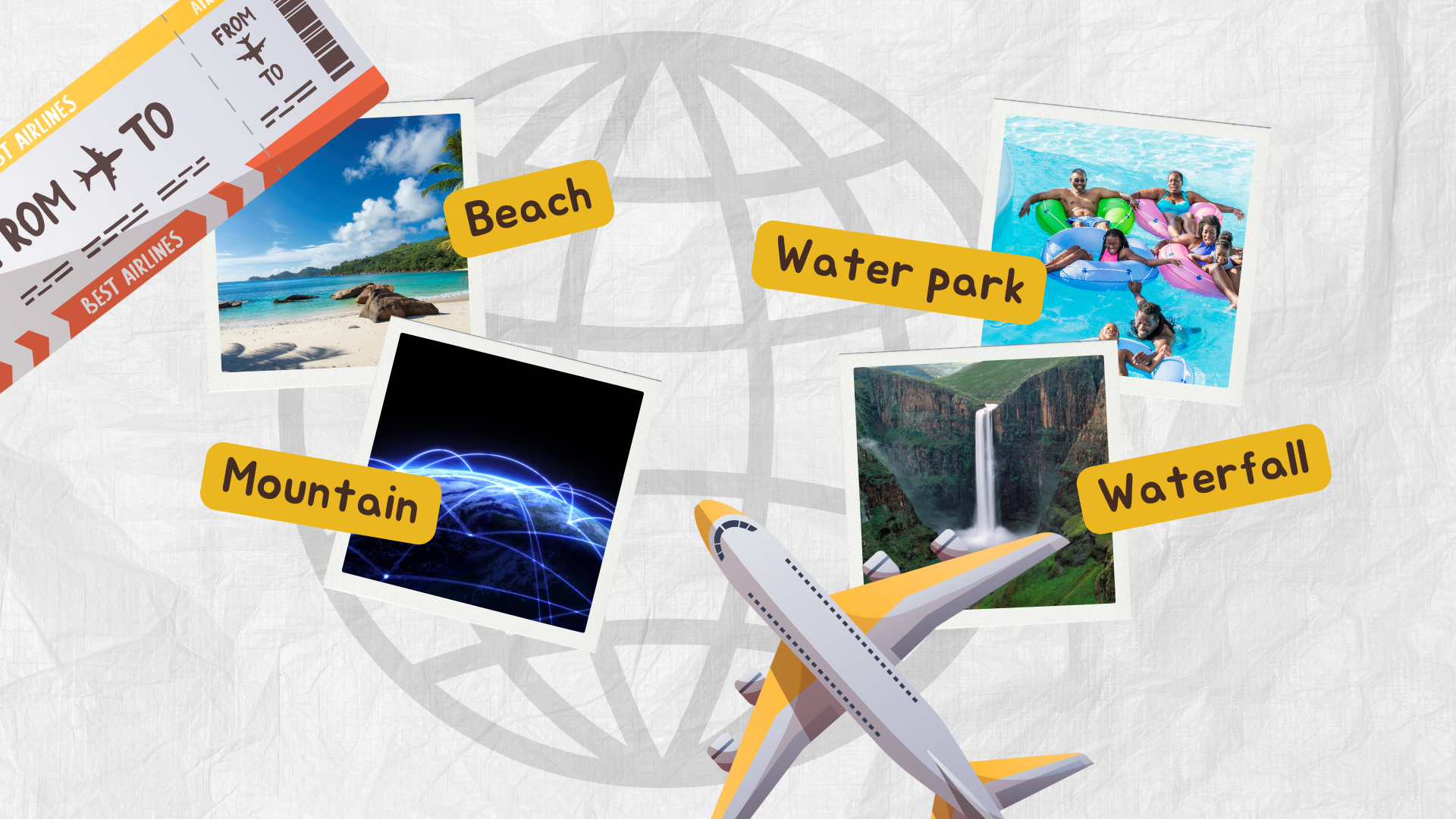
Travel Convenience and Network Necessity
Just a decade ago, we all relied on printed boarding passes, paper maps, and guidebooks. Today, all that lives on our phones. Boarding passes wait in mobile wallets, hotel reservations in email inboxes or booking apps, and GPS helps with navigating unfamiliar streets. While waiting for a ride or at the end of the day, a streaming app or online game can help pass the time.
The only challenge is that this convenience depends on public or semi-public internet access. Airport terminals, cafes, trains, and hotel lobbies all promise free Wi-Fi, but “free” often means “unsecured.” Hackers exploit this vulnerability, collecting data for profiling, identity theft, or directly siphoning money from your accounts. Tourists are an easy target since they’re on the move, distracted, and less likely to notice a problem before it’s too late.
Using caution when choosing a network helps, but you can still run into problems related to varying internet rules. Some countries block social media and messaging apps. Others allow access but monitor your online activity. When you’re traveling, you need access to your favorite apps to keep in touch with friends, family, and coworkers without compromising your privacy.
Thankfully, a VPN acts as a universal internet key, unlocking access while keeping your connection safe. Whether you’re posting photos, sending work files, or just trying to catch the next episode of your favorite show, X-VPN’s encrypted tunnel ensures your online experience stays consistent and secure.
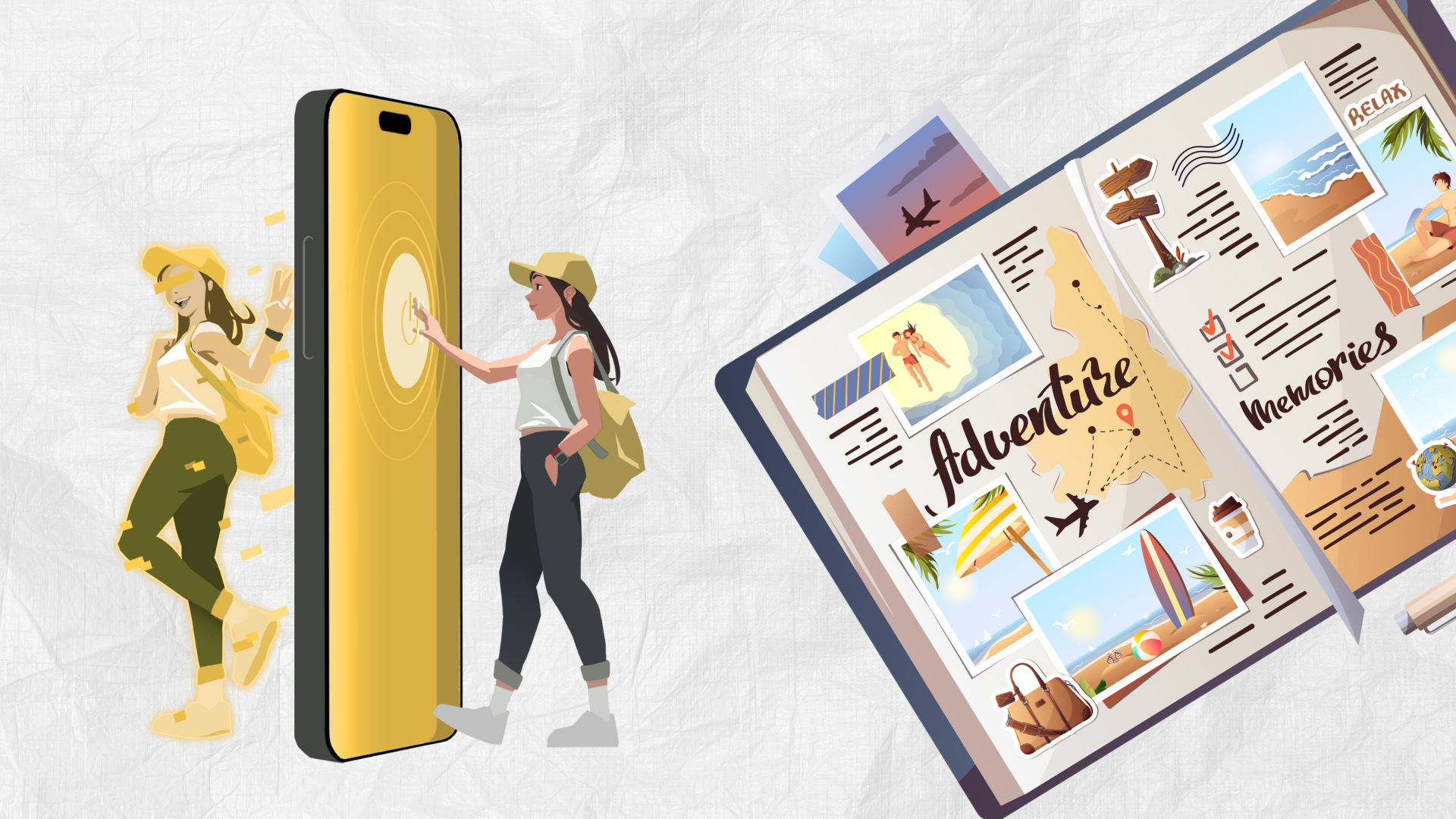
Staying Safe on Public Networks
Public Wi-Fi is like a playground for cybercriminals. The same features that make it convenient for you also attract hackers. It’s easy to exploit a network that purposely uses easy logins while offering wide bandwidth with minimal security.
A common tactic is the man-in-the-middle attack. Imagine sending a postcard to a friend. You write it, drop it in the mailbox, and expect it to go straight to them. But instead, someone intercepts it, reads the message, then sends it on its way without you knowing. A hacker can position themselves between you and the website or service you’re trying to reach, capturing logins, emails, and even financial details.
Another trick is the “evil twin” hotspot. Hackers set up a Wi-Fi network with a name that looks legitimate. For example, “Airport_Free_WiFi” looks almost exactly the same as “Airport_FreeWiFi,” but only one is legitimate. When you connect, all your traffic flows through their system. Packet sniffing tools can quietly capture unencrypted data streaming over the network, piece by piece.
Since we’re constantly connected with few concerns at home, these vulnerabilities can sneak up on you. You might reach the airport and log in to check your bank balance before arranging for local transportation. If the connection isn’t secure, your username and password can be intercepted in seconds.
A VPN changes the equation, keeping you safe on public networks. The moment you connect, all your traffic is encrypted, becoming unreadable code that could take hundreds of years to crack. Then this protected data stream is directed through a secure tunnel to its intended destination. Anyone snooping on the same network sees nothing useful, just encrypted data that’s worthless without the key.
For travelers, digital safety is crucial. We’re often in a rush, less careful than at home, and that’s exactly when cyberattacks are most likely. With a service like X-VPN, your information stays private, whether you’re sending personal messages or handling work documents.
Overcoming Geo-blocking and Content Restrictions
When you sign into a streaming service, they know where you are. That’s because your IP address acts like a digital postal code. When you travel, your IP address changes and provides an approximate location. Suddenly, the show you’ve been binging on for the past week might be blocked.
Entertainment is just the start. As mentioned above, entire social media platforms are controlled in some countries. Others restrict access to news sites and communication tools. That can affect how you stay in touch with friends and family, and could interfere with work.
A VPN can help you deal with these problems, letting you access content like you’re at home. Effortlessly connect to your favorite streaming service or website with no hassles. You can also pick any location in any country your VPN supports. X-VPN is among the largest, with over 10,000 servers worldwide. That means you can keep watching current series, stay up to date on local news, and post updates on social media, no matter where you are.
There’s also a money-saving tip that requires a VPN. When booking flights or hotels, the prices you see can change depending on your detected location.
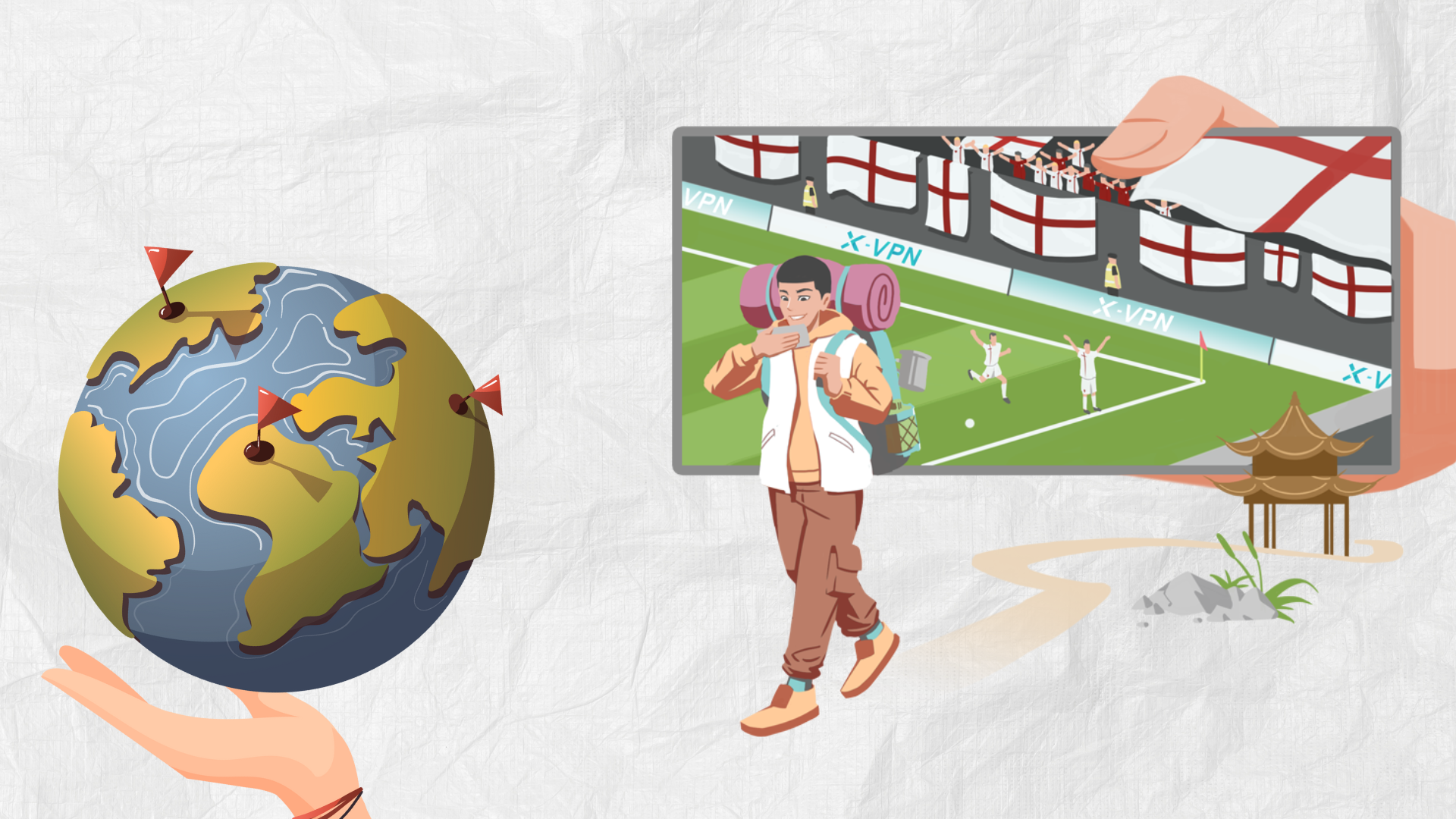
Of course, in the vast majority of regions, using a VPN is legal. However, for your safety, please carefully check local laws before taking action and comply with the rules of service platforms.
Staying Safe When Working Remotely Abroad
The rise of remote work has given rise to a new category of traveler, the digital nomad. Whether you’re at a coworking space in Berlin, a cafe in Bali, or a hotel lobby in Tokyo, the challenge is the same. You must protect financial details, corporate logins, and trade secrets when connecting to public networks.
Private data like client files, contracts, and confidential emails can be intercepted if sent over unsecured connections. That’s a liability for the companies you work for and a risk to your reputation and livelihood. Many organizations now require remote workers to use a VPN as part of their security policy, even on trusted networks. This ensures that every file transfer, video call, and login remains encrypted from end to end.
When you can’t afford to have any leaks, X-VPN’s Kill Switch automatically blocks internet access if the VPN is disconnected. For traveling professionals, that extra level of security provides complete protection for clients and employers.
Choosing the Right VPN for Travel
VPN quality varies significantly, so it’s essential to pick the right one. Making a decision on price alone can mean dealing with slow speeds, unreliable connections, and questionable privacy practices. For travel, look for these must-have features:
- Strong encryption with WireGuard, OpenVPN, or more advanced protocols like X-VPN’s Everest
- A strict no-log policy, ensuring your activity isn’t stored
- A kill switch that cuts internet access if the VPN connection drops
- A large, diverse server network to provide options for speed and access
- High-speed performance for streaming and video calls
- Multi-device support, with apps for your phones, laptops, and tablets
Speed matters when you’re traveling since you’re always on the go. Slow connections can make streaming or video conferencing impossible. Server variety also matters, not just for navigating geo-restrictions but also for viewing content in local currencies and time zones.
Security is crucial while traveling, but some VPN have questionable privacy policies that allow data sharing or even selling details to advertisers. Trustworthy VPNs get right to the point and don’t mince words. Here’s X-VPN’s statement: First and foremost, X-VPN DOES NOT and WILL NOT LOG any user’s traffic data, which includes your browsing history, traffic data, and DNS queries.
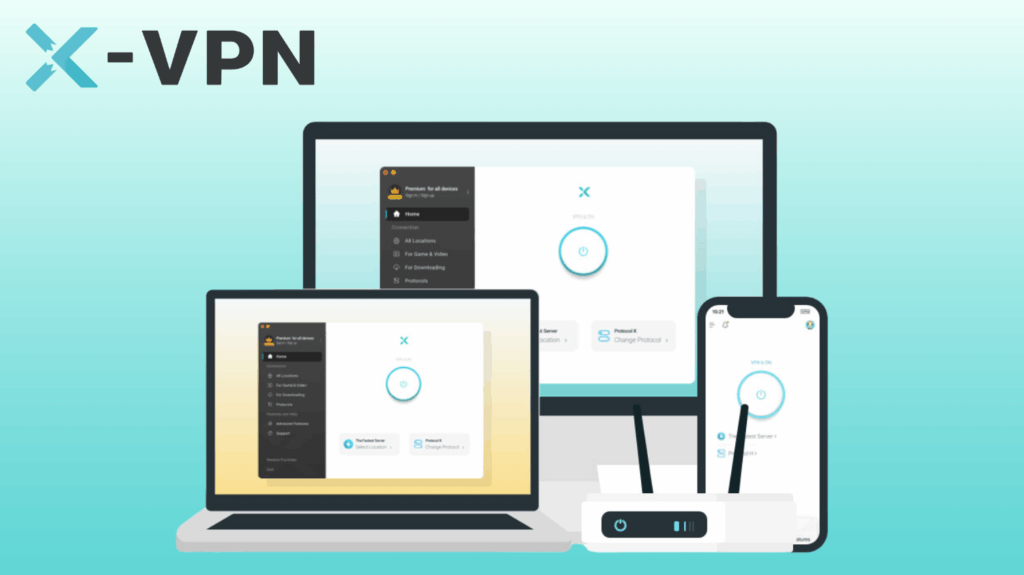
Travel smarter, travel safer
A VPN is like travel insurance for your digital life. You might not need the extra security, but why take that risk? A few dollars a month can secure your privacy while you stay in touch with friends and family, keep current on series and local news, and work securely from anywhere.
When planning your next trip, be sure to pack a VPN, along with your luggage, to enjoy the safety of home while you travel abroad. In today’s connected world, your privacy and digital security depend on more than locks. It’s essential to safeguard your personal, professional, and financial data with a high-quality cybersecurity service like X-VPN.

